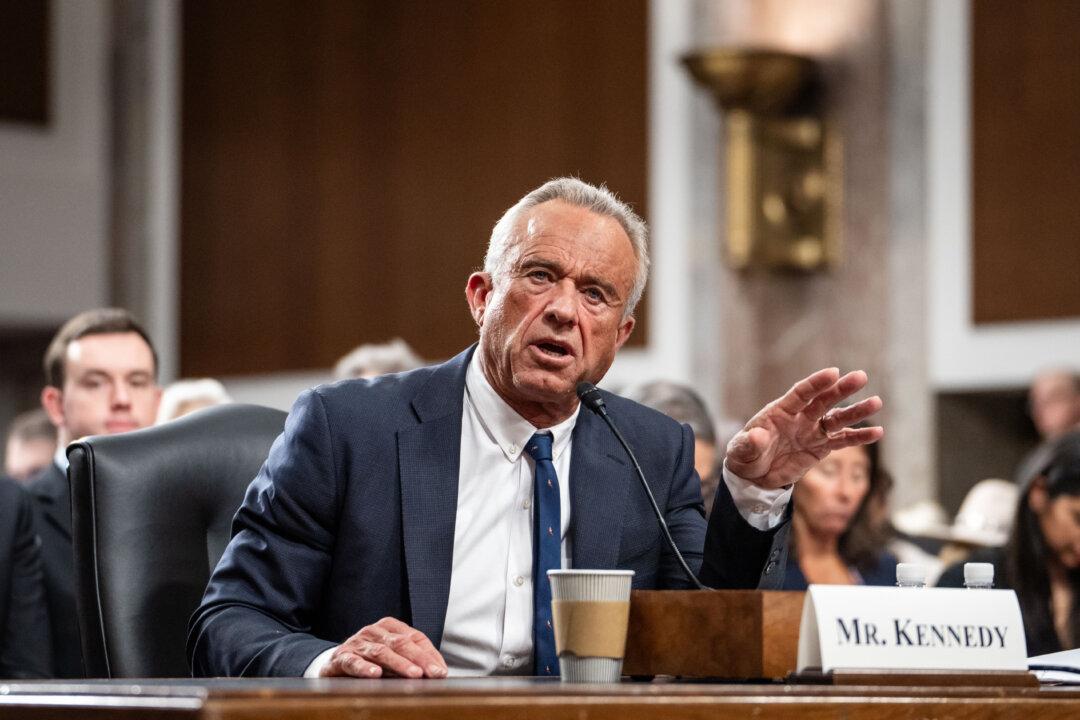Robert F. Kennedy Jr. took a step closer to becoming secretary of the Department of Health and Human Services on Feb. 4 when the Senate Finance Committee advanced his nomination to the Senate floor for a full vote with a 14-13 tally.
Criticized by Democrats for their perception of his stance on vaccines, and questioned by some Republicans who have expressed concern over his views about abortion, the former Democrat and independent presidential candidate must get a simple majority to gain confirmation.





